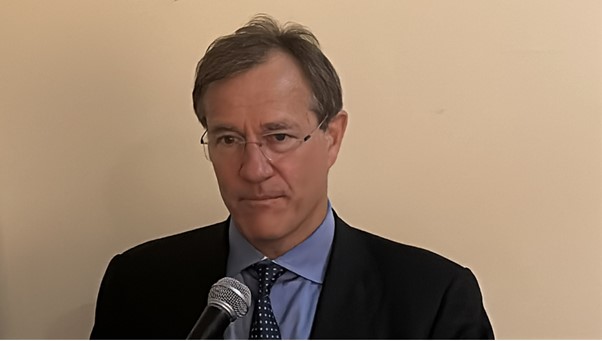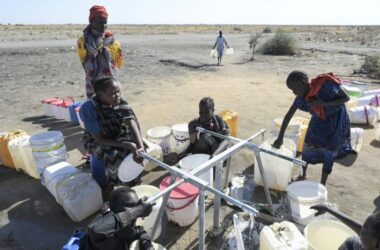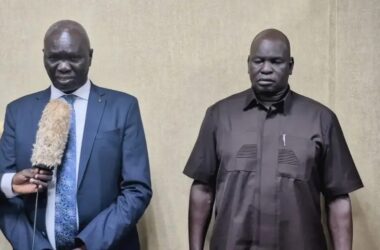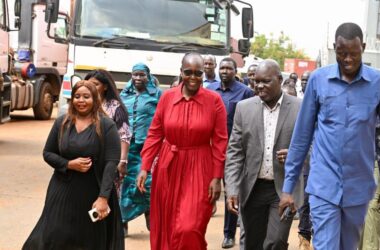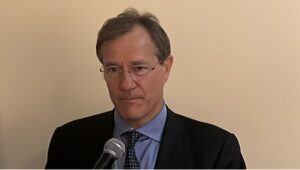
On 19 August, World Humanitarian Day was commemorated in an honor of those who step into crises to help others, and to stand with the millions of people in need of humanitarian help across the world.
Where bombs fall and disasters strike, humanitarian workers are the ones holding the line keeping people alive, often at great personal risk. But more and more those who help are becoming targets themselves.
In 2024 alone, several humanitarian workers were killed, Some in the line of duty, others in their homes.
Additionally, many has been injured, kidnapped or detained, and for this reason in 2025, organization such as medicine Sans frontiers closed most of its operations in South Sudan.
Too often the world looks away even when these attacks violate international law which meant to protect aid workers are ignored.
Those responsible walk free and silence due to lack of accountability which made system to fail not just humanitarian workers, but the people they serve.
The Number One Citizen Daily English Newspaper’s reporter, Lodu William Odiya had an interview with David Carden the Head of the United Nations Office for the Coordination of Humanitarian Affairs (OCHA) in South Sudan, David Carden for a discussion which focused on the humanitarian condition in this country.
The interview conducted in questions and answers format focus on the continue efforts by humanitarian agencies doing their job despites several challenges in South Sudan.
Carden reiterate a call on the government and all stakeholders to protect humanitarian workers and civilian at large.
“I take the opportunity of this WHD 2025 to reiterate my call on the Government, non-state actors, and stakeholders to protect and ensure the safety of civilians, including women and children, and humanitarian workers, and to guarantee access to people in need” Carden said.
“Also, I urge the international community to remain mobilized in its support of South Sudan and its journey toward peace, recovery, and resilience” he added.
Question and answers
Question: As the world pays tributes to aid workers on this day, what risks do workers face while delivering services in conflict and hard-to-reach areas in South Sudan?
David Carden
Humanitarian workers across South Sudan operate in extremely remote and often hazardous conditions to reach those in need. They face serious risks, including harassment, armed attacks, abductions, looting of supplies, asset confiscation, and exposure to disease and environmental dangers such as floods and snakes.
Since the beginning of the year, there have been 26 casualties, including 15 humanitarian workers and 11 contractors who have been killed or injured, a deeply troubling increase from 15 people in the same period last year. Between January and July 2025, over 200 incidents of direct violence against humanitarians and assets were reported, up from 176 last year. Escalating insecurity has forced 56 humanitarian workers to relocate from their operational areas.
Since March 2025, the escalation of conflict has led to increased attacks on humanitarian facilities in Upper Nile and Jonglei states. In May 2025, a health facility run by an international NGO was bombed, destroying medical supplies and injuring staff. In Upper Nile, looting and attacks forced the closure of a hospital serving over 150,000 people. In July, an NGO staff member was abducted in Central Equatoria State, prompting the suspension of operations in Yei and Morobo counties in Central Equatoria
Question: What possible steps have been put in place to minimize such risks?
Humanitarian partners are working closely with all actors involved in the conflict to promote the protection of civilians and ensure safe access to communities in need.
Some breakthroughs were made to assist people in hard-to-reach areas. However, immediate and unrestricted access remains essential.
Due to increased insecurity, organizations have revised delivery routes and now rely more on airdrops.
However, air transport bears heavy costs on already overstretched humanitarian resources. Also, the need for a prior reassessment of risks and implementation of additional safety measures caused a break in the operations of humanitarian partners in the dangerous zones in the Upper Nile and Central Equatoria States.
The humanitarian community continues to advocate for investigations into attacks, accountability for perpetrators, and adherence to international humanitarian law to safeguard personnel and assets.
Question: Despite conflict in some parts of the country, are there some best practices in South Sudan that ease humanitarian work?
Humanitarian partners seek to continually improve their shared understanding of changes in the operating humanitarian environment through principled engagement with all actors.
They endeavor to adapt the humanitarian response to the local conditions. In this regard, local organizations are at the core of the delivery of the humanitarian response, bringing their local knowledge and anchors in the communities.
The whole humanitarian system fully supports the localization of humanitarian assistance.
More than 273 organizations are part of the 2025 humanitarian response, of which 63% are local NGOs.
The majority of humanitarian workers are South Sudanese nationals. They serve their own communities with extraordinary courage and commitment, often reaching areas inaccessible to international actors.
Increasingly, cash assistance is becoming the preferred method of delivery of humanitarian assistance. It enhances the dignity of the people in need and empowers them to make decisions about the best use of humanitarian assistance.
In addition, given people’s prolonged dependence on humanitarian assistance, humanitarian partners collaborate with development and peace partners to build the resilience of the people and communities affected by conflict, floods, and cholera.
This helps to rationalize the limited humanitarian resources and to equip the people and communities to recover from shocks and graduate towards self-reliance.
Question: Can you describe the government’s response in terms of funding toward the humanitarian sector, and how does it affect your work?
The scale of needs requires an increased investment by the Government in the humanitarian sector, both in terms of resources and their predictability.
The adoption of a US$9 million cholera response plan is a good step. Unless the government augments its contribution to the humanitarian assistance, humanitarian partners will continue to bear the burden. This is not sustainable, given the difficult international funding environment.
Question: Regardless of aid cuts, humanitarian workers continue to do their work. How are you managing such a hard situation?
In response to declining donor contributions, humanitarian partners have re-prioritized critical funding requirements that must be mobilized to sustain only lifesaving activities throughout the year.
The funding gap threatens to worsen an already dire situation. Without sustained support, humanitarian partners will struggle to prevent further suffering and loss of life.
Nevertheless, aid workers remain committed. By June 2025, 3.2 million people had received life-saving assistance through ground delivery and emergency airdrops to conflict-affected and hard-to-reach areas.
Question: Any other additional information, as well as a message to the government, citizens, organizations, and the public at large
In commemorating World Humanitarian Day, we honor the commitment of humanitarian workers who, each and every day, reach people in need with life-saving assistance, often under the most challenging and dangerous conditions.
In times of conflict, disaster, or disease, they respond, protect, and save lives. Whilst South Sudan needs humanitarian workers more than ever, the humanitarian community faces immense pressures, from a reduction in funding to a surge in attacks on workers, including injuries, kidnappings, and killings.
I take the opportunity of this WHD 2025 to reiterate my call on the Government, non-state actors, and stakeholders to protect and ensure the safety of civilians, including women and children, and humanitarian workers, and to guarantee access to people in need.
Also, I urge the international community to remain mobilized in its support of South Sudan and its journey toward peace, recovery, and resilience.

